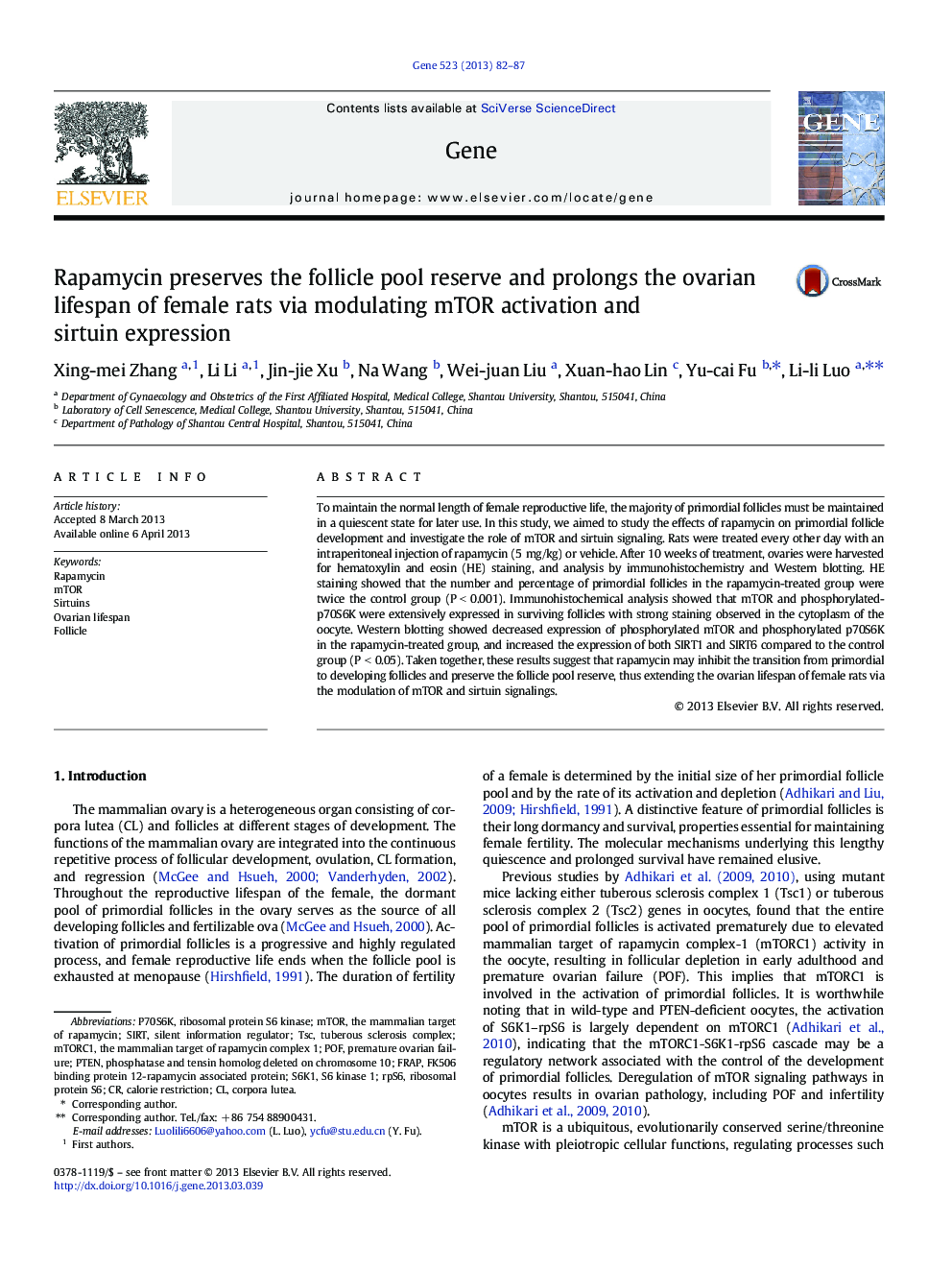| Article ID | Journal | Published Year | Pages | File Type |
|---|---|---|---|---|
| 5906521 | Gene | 2013 | 6 Pages |
Abstract
To maintain the normal length of female reproductive life, the majority of primordial follicles must be maintained in a quiescent state for later use. In this study, we aimed to study the effects of rapamycin on primordial follicle development and investigate the role of mTOR and sirtuin signaling. Rats were treated every other day with an intraperitoneal injection of rapamycin (5Â mg/kg) or vehicle. After 10Â weeks of treatment, ovaries were harvested for hematoxylin and eosin (HE) staining, and analysis by immunohistochemistry and Western blotting. HE staining showed that the number and percentage of primordial follicles in the rapamycin-treated group were twice the control group (PÂ <Â 0.001). Immunohistochemical analysis showed that mTOR and phosphorylated-p70S6K were extensively expressed in surviving follicles with strong staining observed in the cytoplasm of the oocyte. Western blotting showed decreased expression of phosphorylated mTOR and phosphorylated p70S6K in the rapamycin-treated group, and increased the expression of both SIRT1 and SIRT6 compared to the control group (PÂ <Â 0.05). Taken together, these results suggest that rapamycin may inhibit the transition from primordial to developing follicles and preserve the follicle pool reserve, thus extending the ovarian lifespan of female rats via the modulation of mTOR and sirtuin signalings.
Keywords
mTORS6 kinase 1RPS6POFmTORC1SirtuinsS6K1p70S6KSIRTTSCFRAPcorpora luteasilent information regulatorRapamycinphosphatase and tensin homolog deleted on chromosome 10folliclecalorie restrictionpremature ovarian failurethe mammalian target of rapamycinRibosomal protein S6ribosomal protein S6 kinasePtenTuberous sclerosis complex
Related Topics
Life Sciences
Biochemistry, Genetics and Molecular Biology
Genetics
Authors
Xing-mei Zhang, Li Li, Jin-jie Xu, Na Wang, Wei-juan Liu, Xuan-hao Lin, Yu-cai Fu, Li-li Luo,
